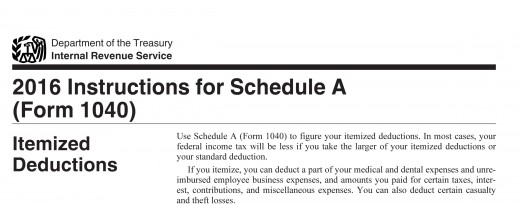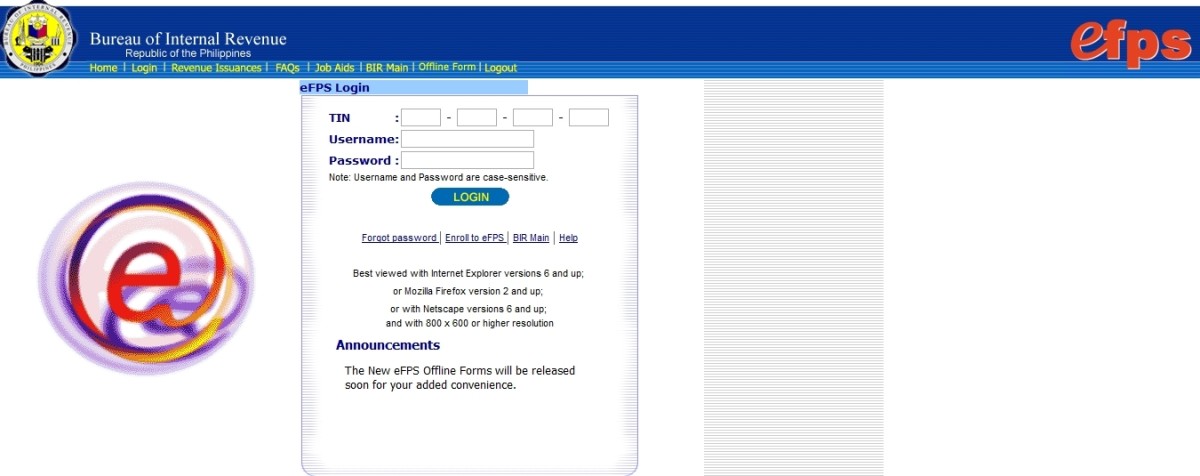- HubPages»
- Personal Finance»
- Tax & Taxes»
- Tax Advice
IRS Audit! Schedule A Deductions

Schedule A (itemized deductions)
For most people, the largest itemized deductions are simple to prove: mortgage interest, state income taxes and real estate taxes. Don't spend a lot of time with these unless specifically mentioned in your audit letter -- the IRS probably has the reporting documents, such as W-2s, 1099-Rs and 1098s. Canceled checks or receipts to prove that you paid the expense will suffice. If your county lists personal property tax history on a website, printing that out will help.
Medical expenses. Make sure you only showed the amounts you paid, not what you were billed. Payments for the taxpayer, spouse and someone who was a dependent when the expenses were incurred are allowable. If the dependent isn't on the return getting audited, bring the prior tax return(s) and the medical bills from those years. You will probably also be asked about your insurance coverage. Premiums paid with pre-tax money, which is usually the case with coverage through an employer, are not deductible.
If you receive the Advance Premium Tax Credit on health insurance purchased through Healthcare.gov, you have to file a reconciliation on Form 8962. If this form shows you are eligible for more of the tax credit, you have to decrease your deductible medical expenses by the additional credit. If the reconciliation makes you pay back some or all of the credit you received, you can use this additional amount as a deductible medical expense. The IRS is not sure taxpayers are making these adjustments correctly.
Useful Tip: Expenses paid with a credit card are deductible in the year they're put onto the card, not when the card balance is paid.
Taxes. Usually easy to prove. Withholding is shown on your W-2s and any additional state taxes paid can be shown by canceled checks or credit card statements. Don't forget that the final estimated payment isn't due until January of the next year -- so what you show as state taxes paid on Schedule A may not be the same as what's on your state return.
For example: Your 2015 state estimated payments were $250 each, and were paid on the due date. Your income went up for 2016, so your estimates were $400 each. Your 2016 state tax return will show payments of $1,600, but your federal Schedule A should have $1,450 ($250 paid on January 15, 2016, and $400 on April 15, June 15 and September 15).
Taxes paid to a foreign government generally come through mutual funds that hold foreign stocks, and can be proved with your brokerage statement. If you lived in another country and paid taxes there, a copy of that country's tax return would be useful.
Interest. Mortgage interest on up to two houses is allowed, your primary residence and a second or vacation home. If you have more than 2 Form 1098s included on the return, you'll be asked why. A home equity loan or a re-financed loan should be easy to show. Seller-financed mortgages are shown on the line 11 rather than line 10, along with the lender's name, address and tax ID number. Margin interest is deductible as investment interest, up to the amount of investment income. Brokerage statements may be reviewed and Form 4952 might be required to calculate this limitation.
In the odd situation where you deduct real property taxes or mortgage interest but the mortgage is reported under someone else's Social Security number, you also have to prove that you are an owner of the property. This involves showing a copy of the deed. You don't, technically, have to be named on the mortgage. The IRS recognizes that failure to pay the mortgage would result in loss of your property. Remember to show the mortgage interest on line 11 in this situation, since the 1098 is under another taxpayer's number.
Charitable donations. Save those receipts! Save any “Thank you” letters the charities sent. A canceled check is not sufficient anymore, because what looks like a (deductible) donation to Salvation Army may have been a (nondeductible) purchase from their thrift store. For non-cash contributions, an auditor wants to see as detailed a list as possible. Presenting a photo taken before boxing up the stuff wouldn't hurt either. For large donations, make sure the "Thank you" letter includes some wording concerning what (if any) consideration was received, as well as the name and address of the charity and amount or money or description of property donated. The Tax Court has ruled in favor of the IRS, disallowing the deduction, when the charity didn't put the consideration received clause in its letter.
Don't forget that charitable deductions are limited by the type of charity and your income. For the most common charities, the limit is 50% of income.
Miscellaneous itemized deductions. Covers stuff that's deductible but doesn't have its own line on the form. Frequently misunderstood or misapplied, this type of deduction is often disallowed by the IRS. Be prepared with receipts and contemporaneous (at the time) written notes.
Think your work clothes qualify as an unreimbursed employee business expense? Not if they are appropriate to be worn elsewhere. A company logo helps but doesn't guarantee a deduction. Form 2106 might have been required but you didn't use it. This is often just an “oops” that doesn't change the return. You will probably be asked to provide a written statement from your employer about the company reimbursement policy. Failing to request a reimbursement that the employer would otherwise pay leads to disallowance of the deduction.
Over the road truckers need to have copies of their logs to support any per diem meals expenses. Lodging for this occupation isn't allowed unless you have actual receipts -- the IRS knows most OTR truckers sleep in their cabs.
Brokerage fees for your investment account are deducted here. This doesn't include transaction charges, which are properly part of the cost of buying or selling investments. The amount often comes from your broker's statement, or the broker can provide you with a printout as supporting documentation.
Do you itemize deductions on your tax return?
Gambling losses
If you have gambling winnings shown as income, you can deduct gambling losses up to the amount of your winnings. These are "MIscellaneous Deductions Not Subject to 2%." The supporting documents that the IRS allows would be either a statement from the casino(s) or a log of your daily gambling activity. The log would have to be pretty detailed, showing dates, locations, amounts gambled and amounts won, broken down by type of game (slots, poker, etc.). Playing on your casino card and using the casino statement is the more common method. You have to request the statement from the casino.
Save those losing lottery tickets!
Repayment of previously taxed income
This is an unusual deduction. Most often, it's used by someone who has collected taxable long-term disability for one or more years. After Social Security Disability is (finally!) awarded, the insurance company requests (or takes) repayment. Since after-tax money is now being taken from you, the Tax Code allows you to get a deduction for it. The required documentation would be letters from the insurance company and a bank statement showing when the specified amount was repaid.
Casualty and Theft Losses
Claiming a loss from the house fire? The IRS wants to know how you determined your loss. For casualty losses, police reports and insurance claims help support your position. Consider making a video of the contents of your home with a running commentary about when you purchased items and how much they cost. Save it at a friend's house or in the Internet cloud.
Or perhaps theft loss from that Ponzi scheme you invested in? These losses become deductible in the year the person running the scheme is first caught, not the year you invested. The IRS will ask for some evidence that there is no reasonable hope for recovery of the amount you've deducted in addition to the canceled checks or credit card payments showing your investment.
Some Related Hubs
- Donation Values - How to Find the Value of Donations for Tax Purposes
Suggestions for valuing your non-cash charitable contributions.








